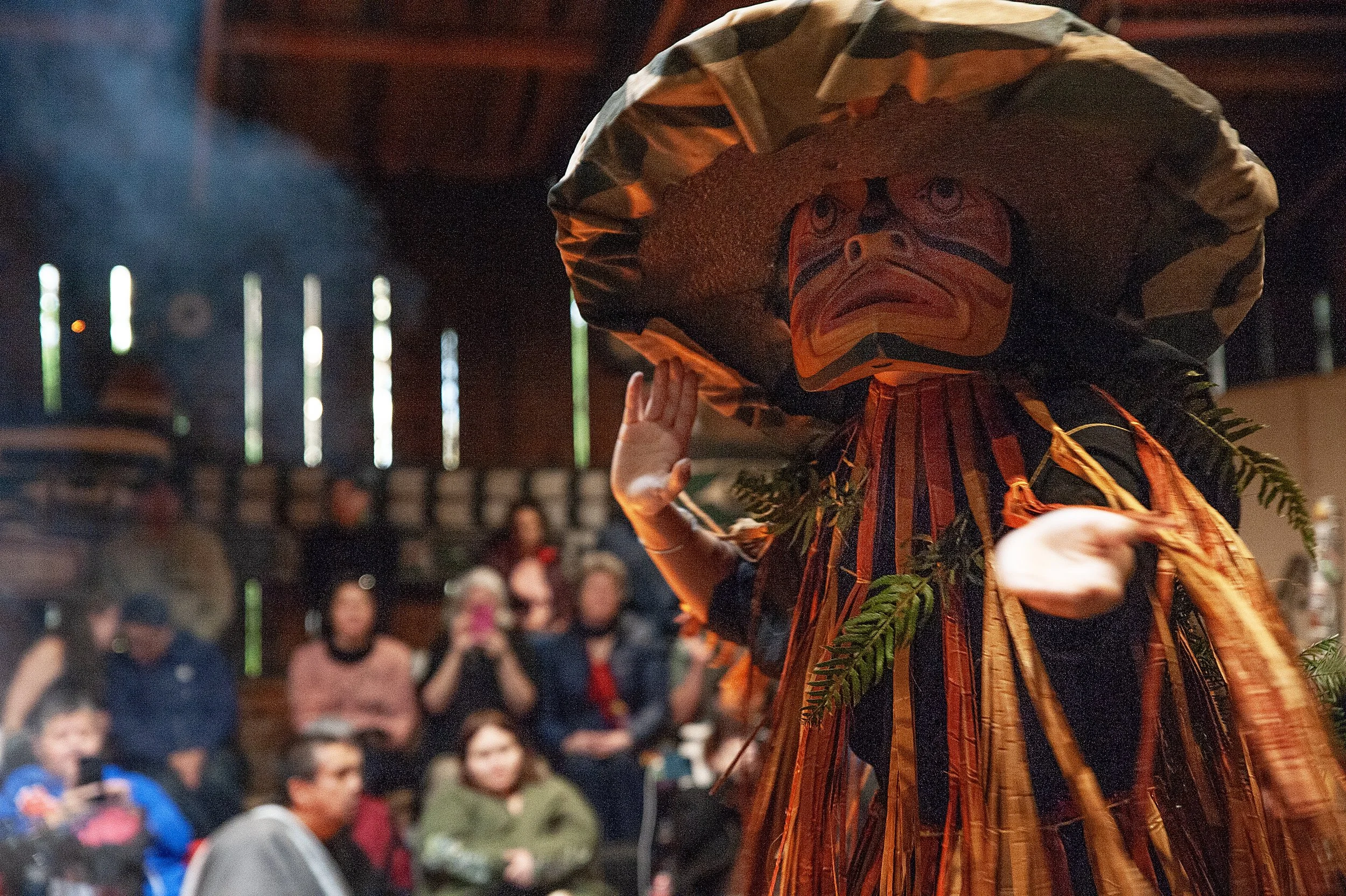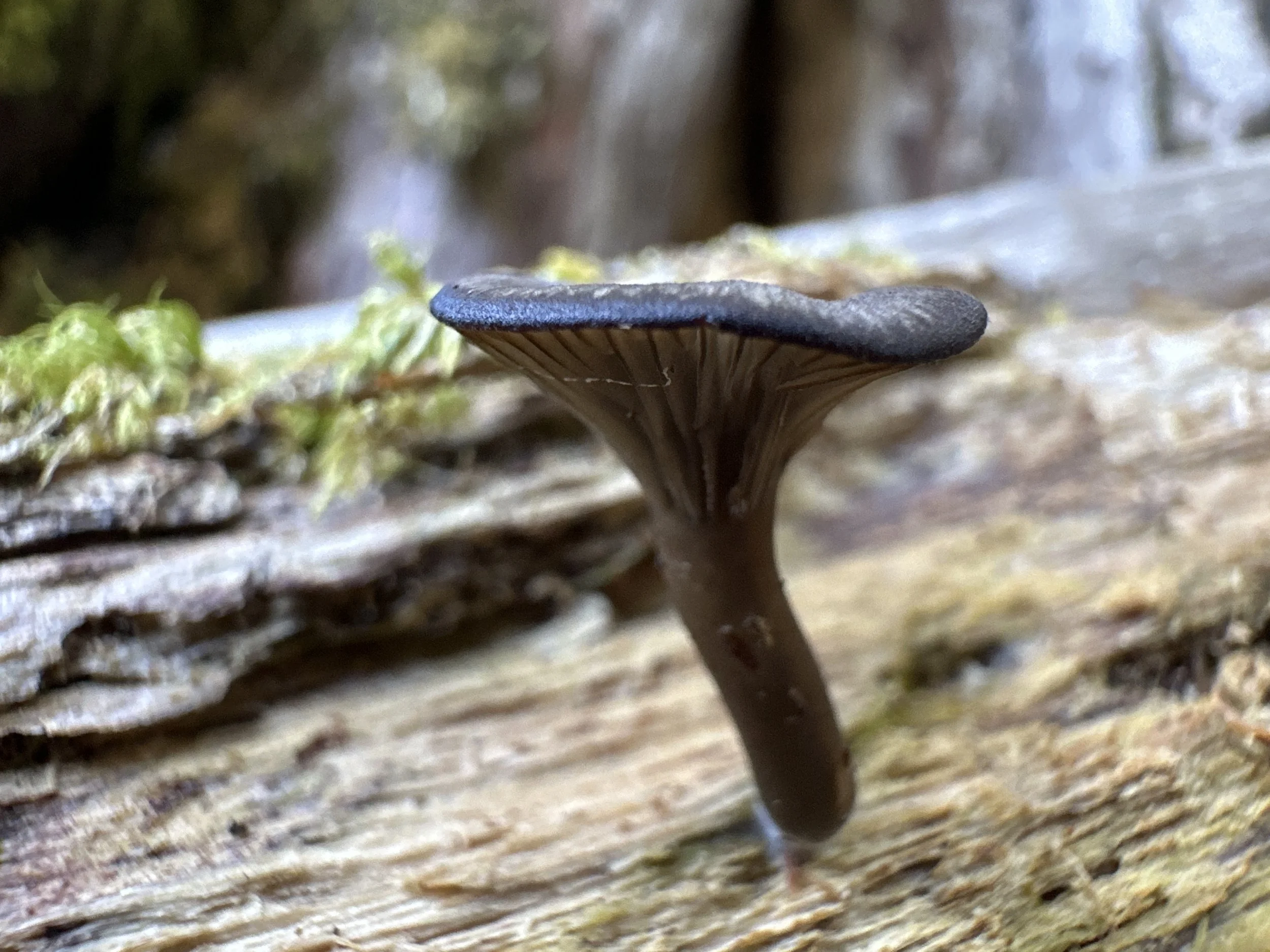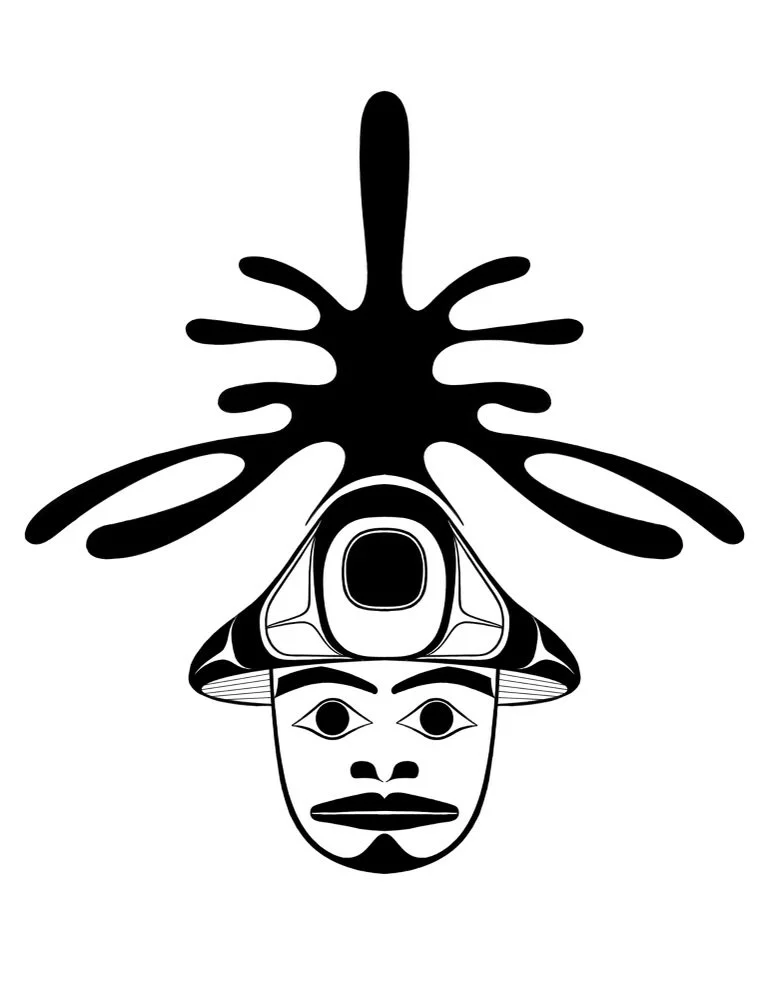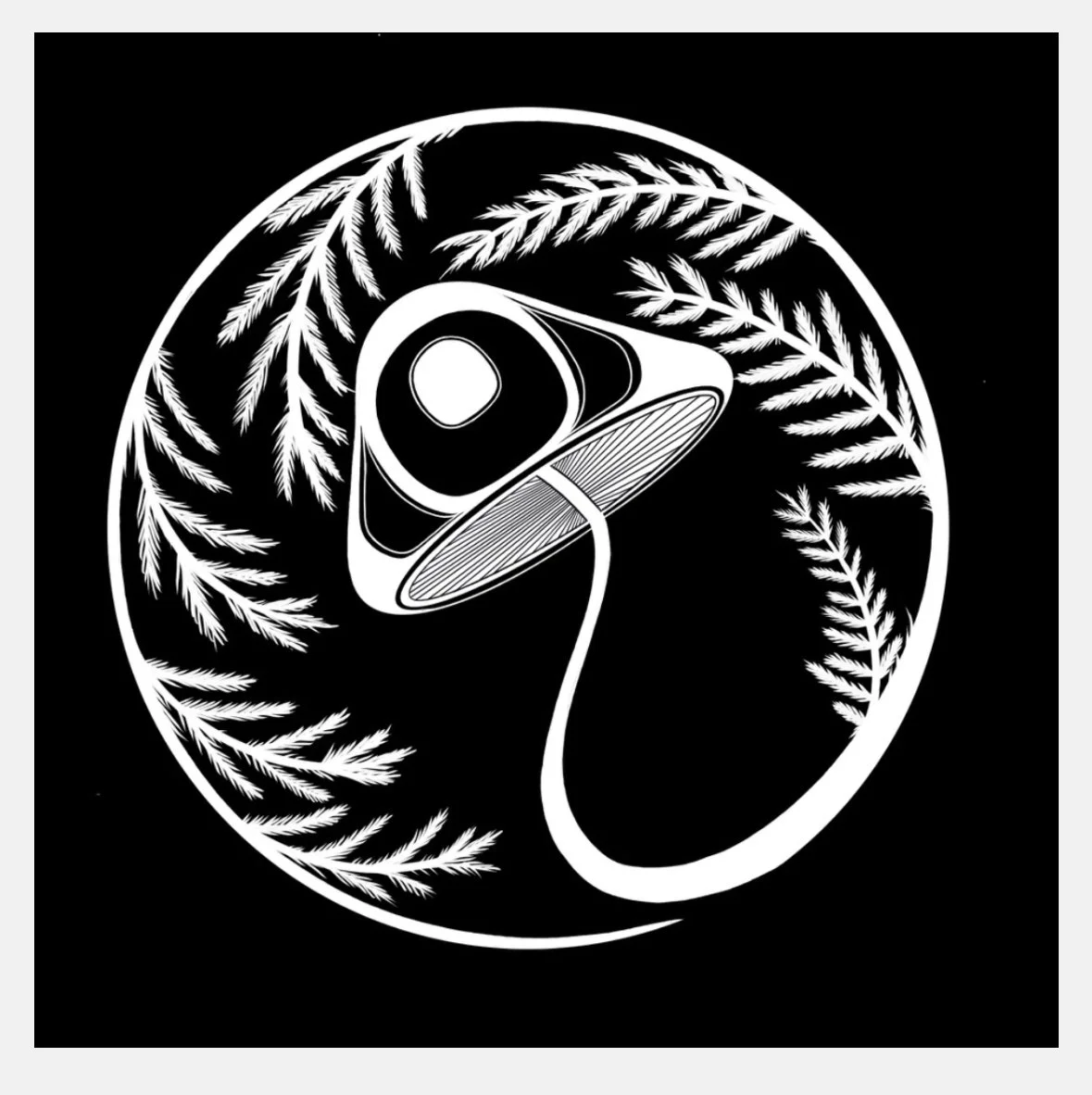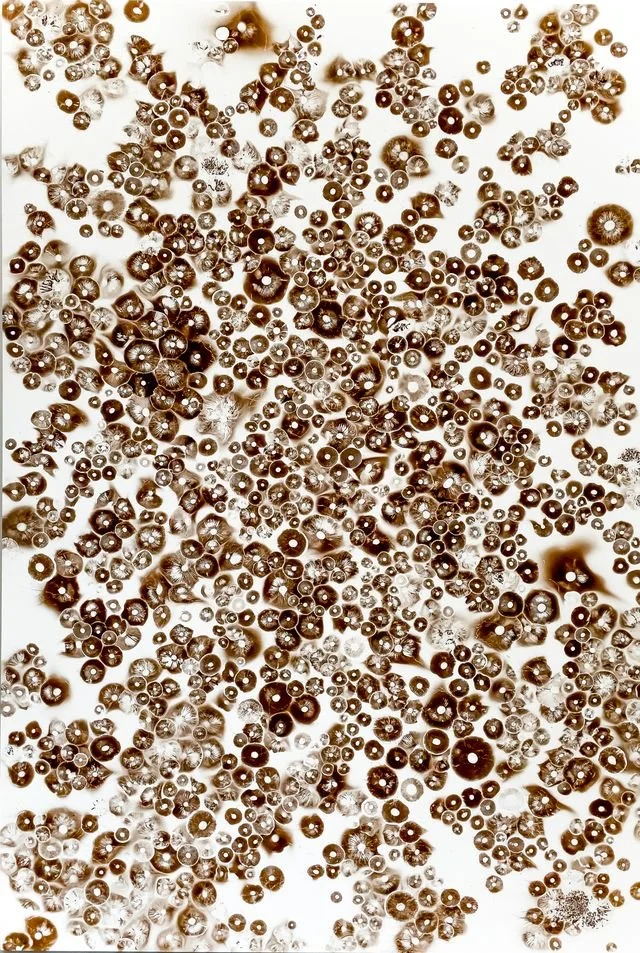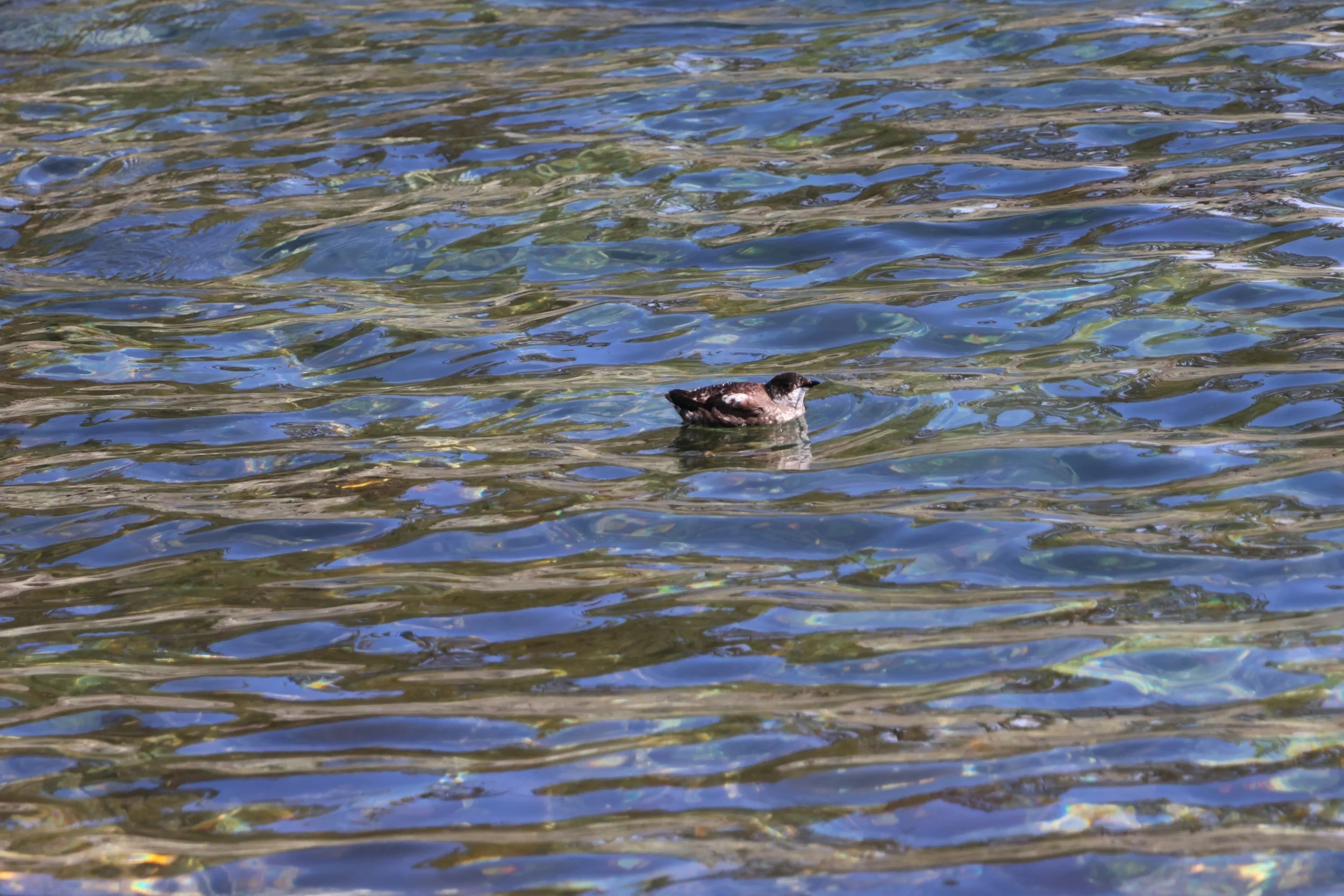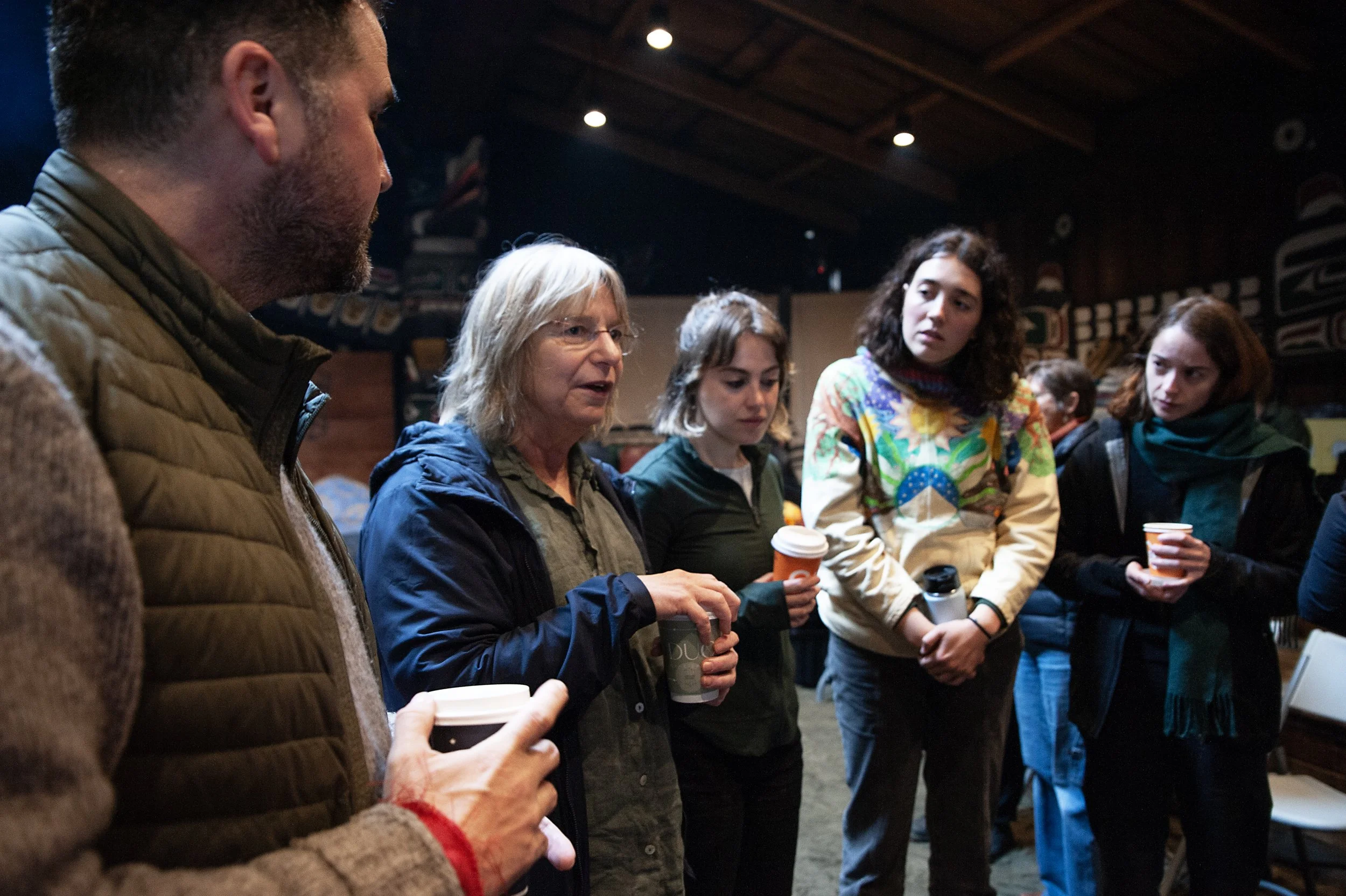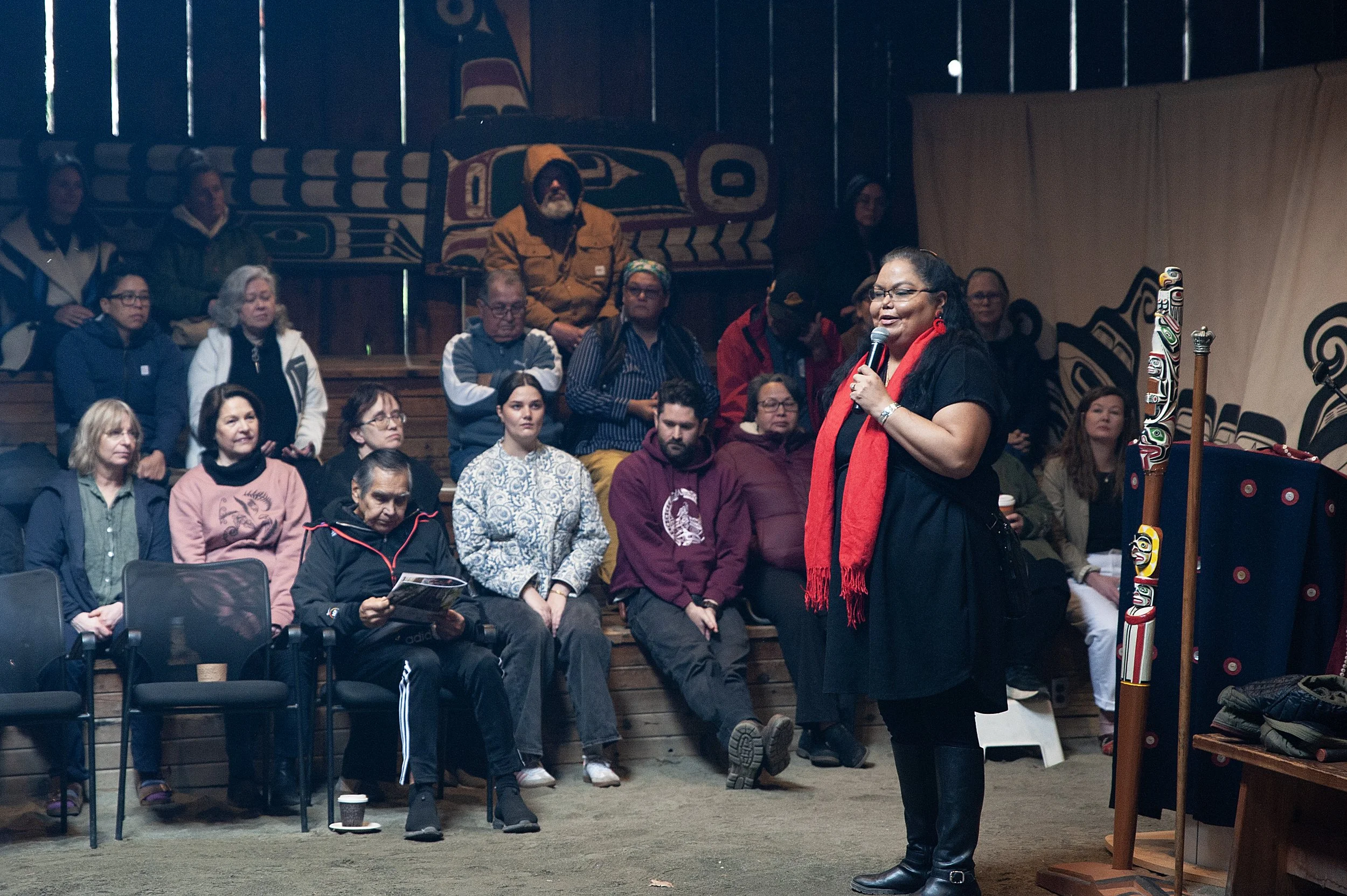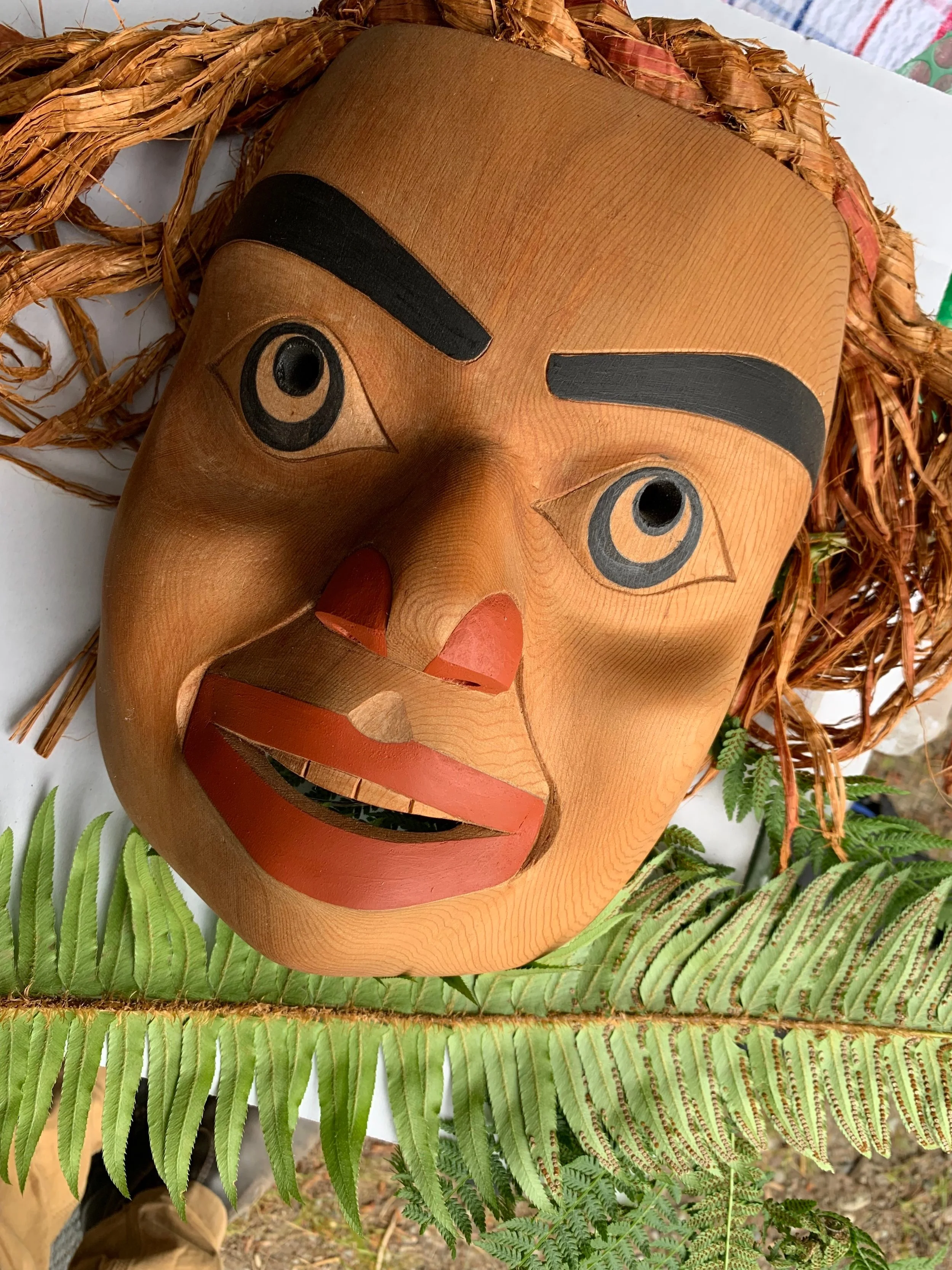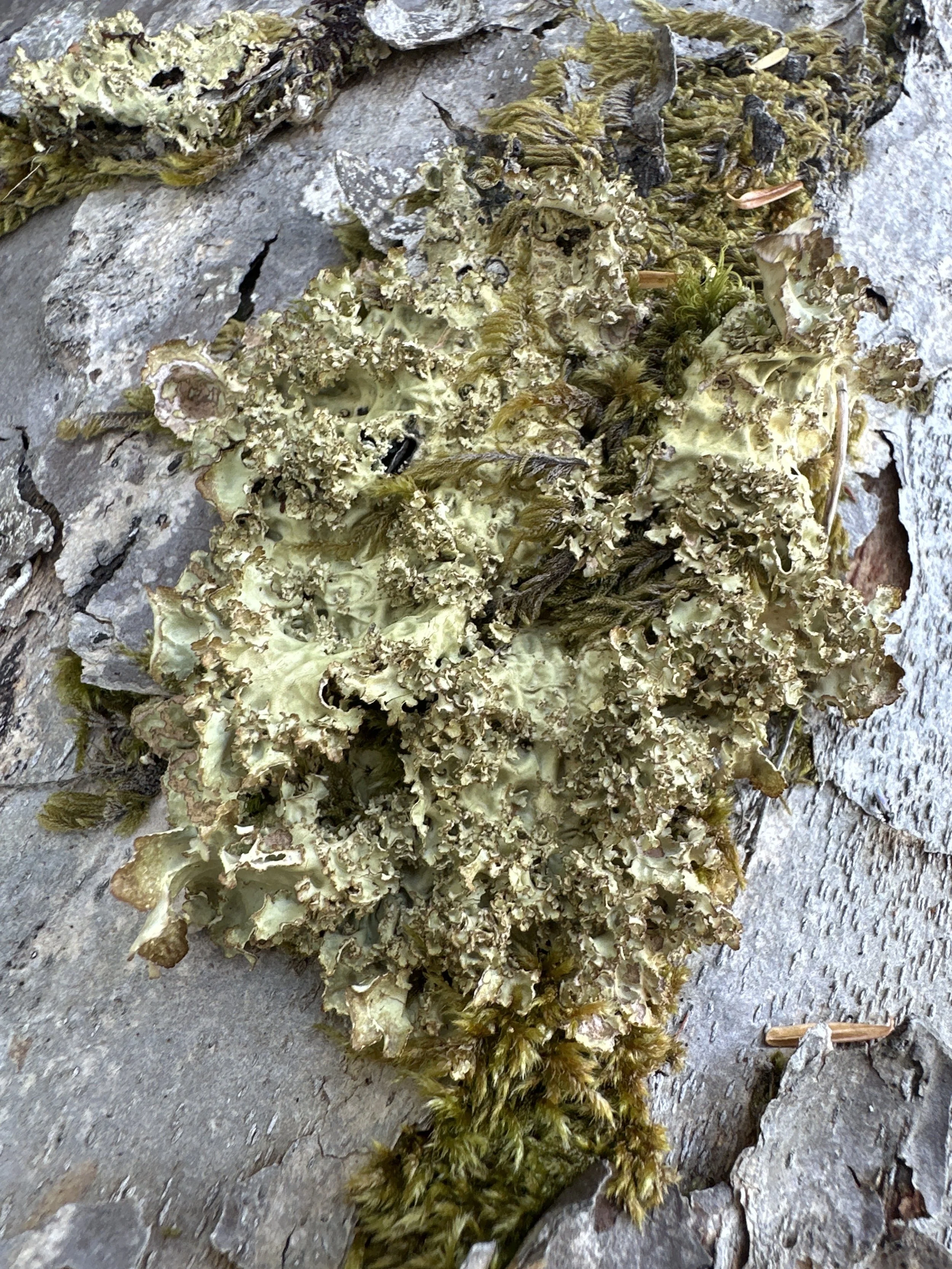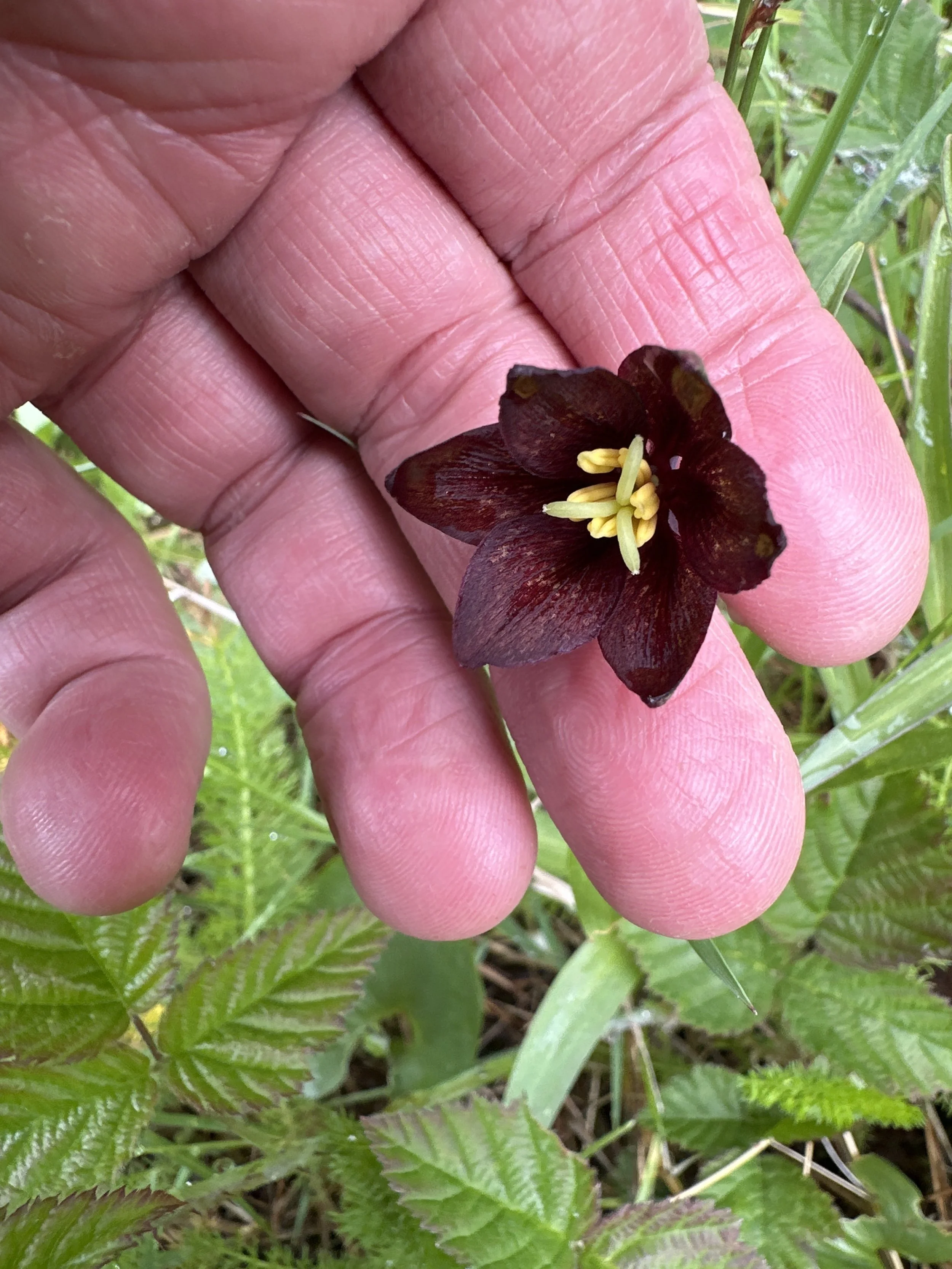
How can we become good relatives to our fungal kin?
Fungi are supernatural beings of the underworld.
Fungi are the healers that help keep our world in balance and restore kinship models.
And we need radical healers now more than ever.
Fungi deconstruct and construct our world in ways we are only beginning to comprehend.
Fungi are queer and nonbinary.
Fungi fundamentally challenge the false dichotomy between people and nature, echoing a poetic example of how inextricably linked the more-than-human-world truly is.
Fungi are Decolonial.
Kani - “mushrooms and other tree fungi” in Kwaķwala
We have come to understand the interstitial and biological role of fungal, lichen, moss and plant communities as a living metaphor for all-our-relations, namwayut, Hishuk-ish tsawalk, Nutsa'maat and many other teachings illuminating our collective reciprocity and the mutuality with all living and non-living things. These relations often defy Linnaean taxonomical categories and remind us of our expansive interconnectivity.
Becoming kin with Fungi delivers a strong opportunity to centre indigenous priorities to heal the land and celebrate a diverse cultural resurgence looking forward to 2030 and beyond.
How might we partner with-or be allies to-Fungi as a pathway to Climate Justice and Indigenous Sovereignty?
Most colonial frameworks of euro-centric conservation have not met the needs of people, nor have they engaged meaningfully with the entangled magnitude of our polycrisis.
One of the central reasons is the reluctance of many to look colonialism, white supremacy and capitalism in the mirror, perpetuating the false dichotomy between people and nature.
Climate change and biodiversity loss are synonymous with capitalism, patriarchy, colonialism and a binary vision of the world.
With an estimated 2.5 - 5million species of Fungi on Earth, less than 10% have been scientifically described. Even the most well-intentioned conservation efforts and scientific inquiry fail to decolonize from the hungry western scientific gaze-arguing that the Fungal “Kingdom” constitutes the next frontier of biodiversity research.
Meanwhile only 0.2% of global conservation efforts prioritize the Fungi matriarchy despite her foundational role for almost all life on earth. Without Fungi, what we understand as a forest would likely not exist. Therefore, efforts to conserve and protect forest ecosystems desperately need to bring fungi into focus and into the forefront in order to adequately understand the trees. Without fungi actively breaking down organic matter, reconstituting and redistributing nutrients life on earth would not exist in any recognizable fashion as we know it now.

As we transform our toxic economies and livelihoods from an inherently exploitative one to a regenerative one, think about how critical it is to break down and reconstitute plastic, petrochemicals or displaced heavy metals in our environment! Fungi are singularly unique relation who are capable of remediating the toxic legacy of capitalism and embodying a generative vision for healing the land.
Despite the foundational and emergent role of fungi in our evolution and biodiversity conservation initiatives, funding programs and colonial policy regimes have failed to adequately acknowledge and respond meaningfully to the needs of fungal communities so they may thrive in their natural environments and continue serving the myriad of miraculous ecosystem functions that a healthy environment needs.
We need to move beyond narrow perceptions of legal pluralism and ask ourselves how we might abide by the inherent laws of the Fungal Matriarchy.
Campaign asks (towards Colonial governance)
Invite partnership with First Nations to establish a Fungal Institute that celebrates and uplifts all our Fungal relations, the cultural interconnectivity and biological interdependence of all life on earth that advances ecological remediation efforts, indigenous-led climate solutions and invests in the restoration economy.
Center The United Nation Declaration on the Rights of Indigenous People; Free Prior and Informed Consent; and Section 35 of the Canadian Constitution in all policy development, research and funding programs, honor crown-indigenous treaties and affirm indigenous sovereignty.
Establish a Ministers Advisory Council on Fungi in a step towards a Provincial Fungal Management Strategy to cultivate legal frameworks for our More-Than-Human kin and recognise Funga on an equal footing with animals (Fauna) and plants (Flora) in legal conservation priorities moving forward.
Table the first of its kind Fungi Relations Act outlining new policy frameworks to fund, protect, conserve and research British Columbia's Fungal biodiversity and draft British Columbia’s first Mycorrhizal/Fungi Conservation Strategy and Action Plan in partnership with First Nations.
Establish an adaptive management toolkit of practical land-use designations, Other Effective Conservation Measures (OECMs), designations for indigenous land stewardship departments and colonial governments to apply management designations akin to Wildlife Management Areas, site specific species protections, management plans, emergency stop-work orders and legally binding surveys for development projects and resource extraction as well as center Fungi in Environmental Impact Assessments as a matter of public interest.
Finance indigenous fungi management planning initiatives and integrate Fungi into Forest Landscape Planning Tables, Reconciliation tables and Land Use Management Plans, Atmospheric and Impact Benefit Sharing Agreements.
Engage the Federal Government in dialogue to encourage Canada to sign on to the United Nations Convention on Biological Diversity Cartagena and Nagoya Protocols; ensure Digital Sequencing Information (DSI) and dematerialized genetic resources from Fungal relations are protected from Artificial Intelligence (AI) and Machine learning synthesis.
Integrate fungal biodiversity into 30x30 Nature commitments, National Biodiversity Strategy and Action Plan (NBSAP) and targets; reallocate and/or rematriate biodiversity metrics and carbon sequestered, synthesized and stewarded by the Fungal Matriarchy to Indigenous communities and not to the National Determined Contributions (NDCs) of Canada’s national climate action plan under the Paris Agreement. Fungi associated soil carbon belongs to First Nations to steward not Canada or British Columbia.
Halt development of Canadian “Biodiversity Markets” and/or the commodification of indigenous territories to be bought, sold and traded through market-based mechanisms that undermine indigenous sovereignty or export environmental harm to other peoples homelands.
Request an Independent Audit of Provincial policy, legal frameworks and governance practices requiring immediate attention to modernize regulatory and funding gaps for a progressive Mycorrhizal/Fungi Conservation Strategy, Action Plan and Fungi Relations Act from the Office of the Auditor General of British Columbia.
